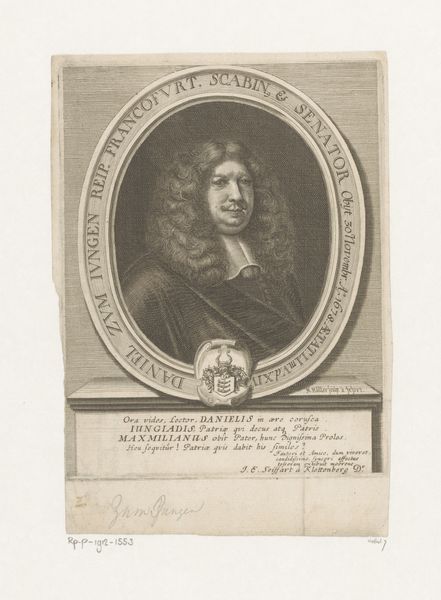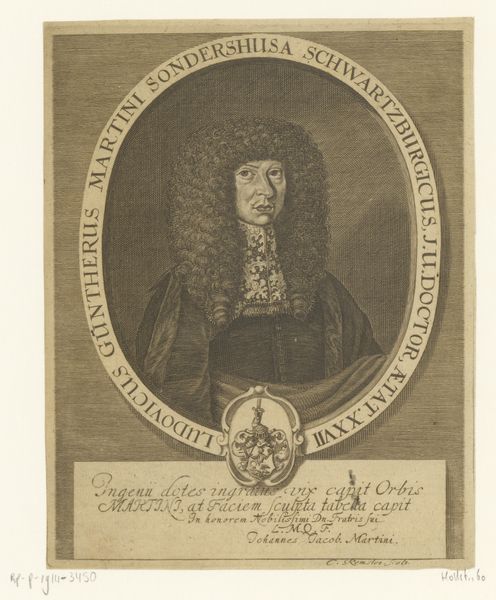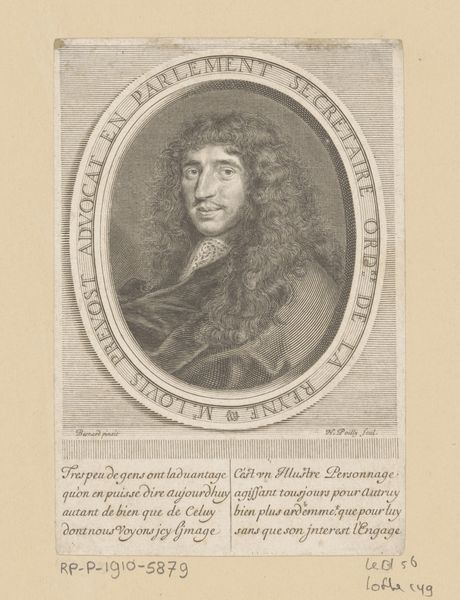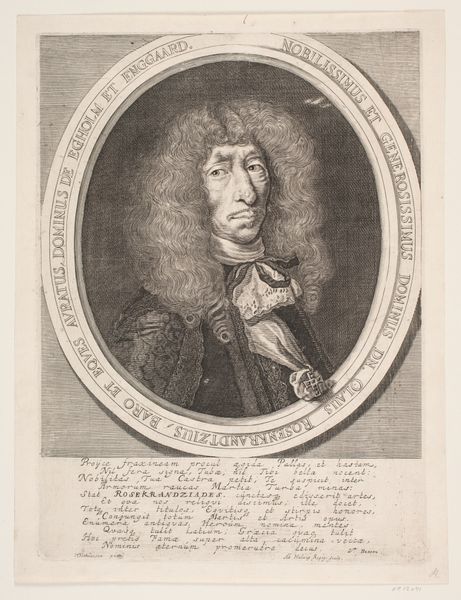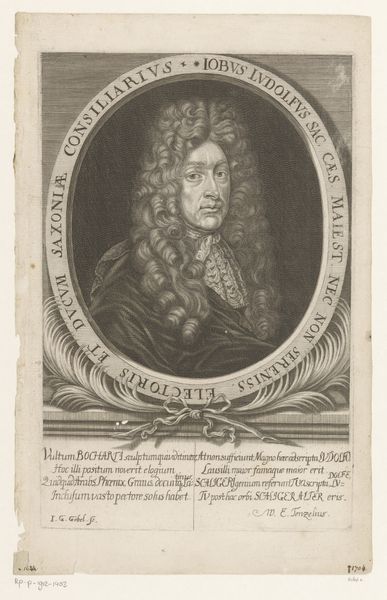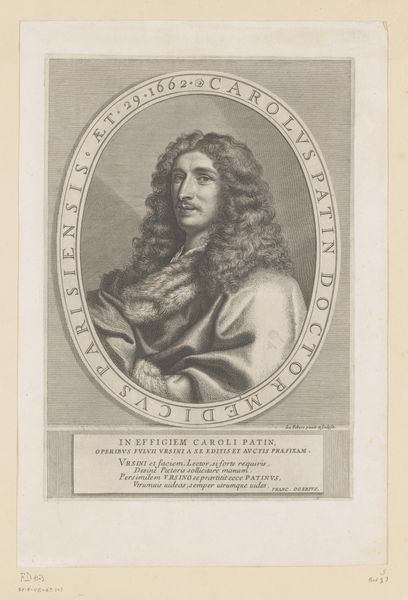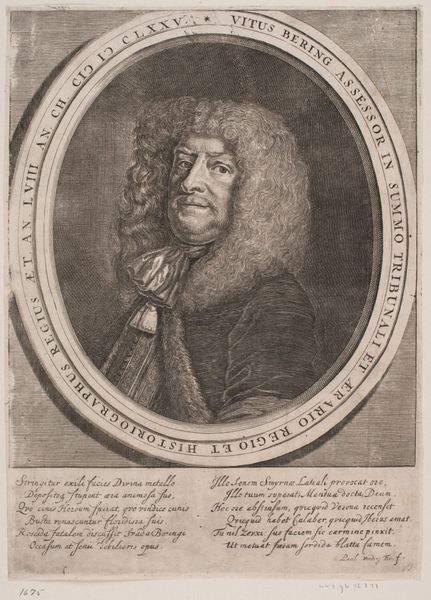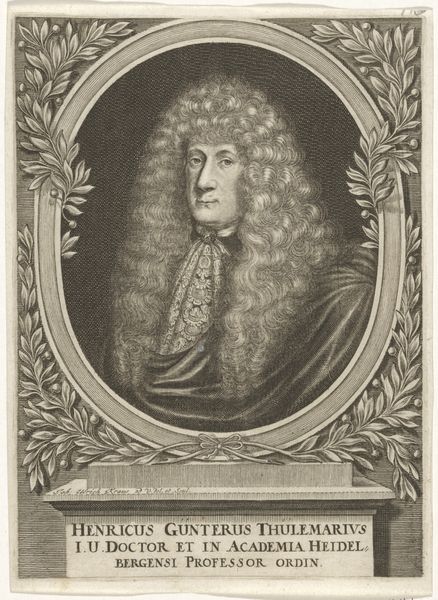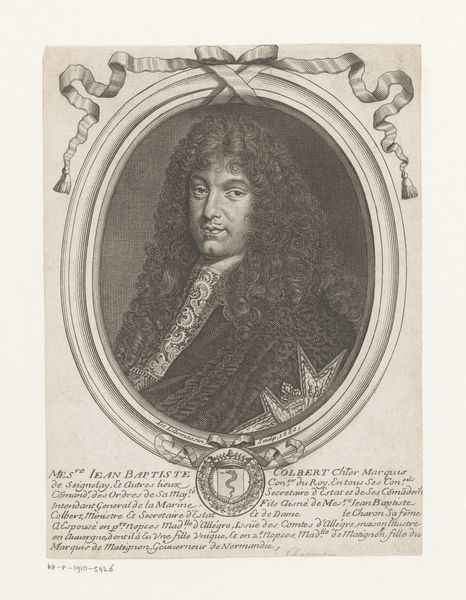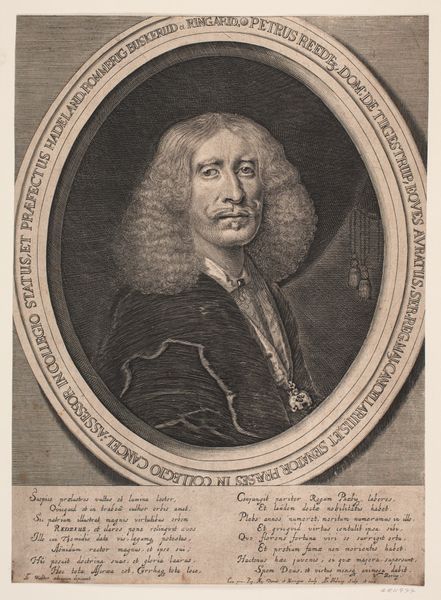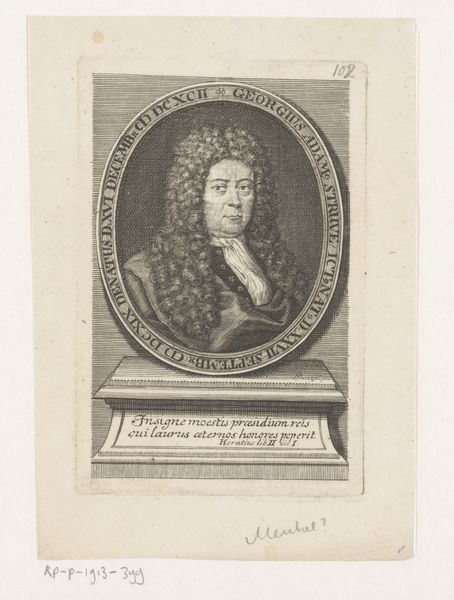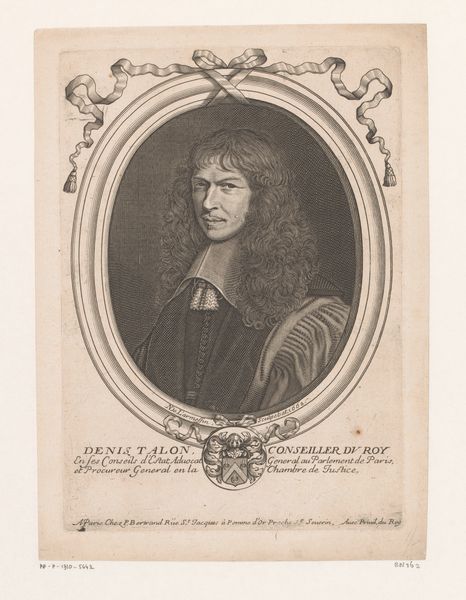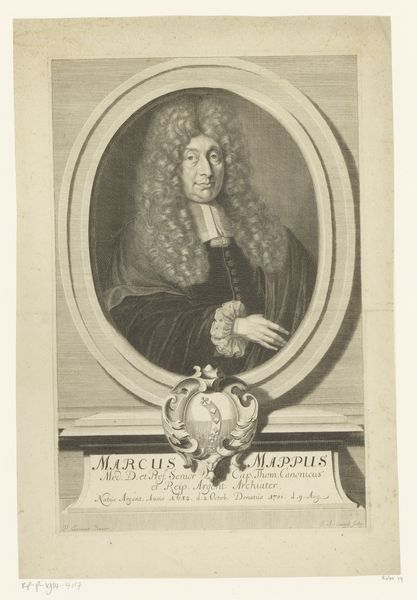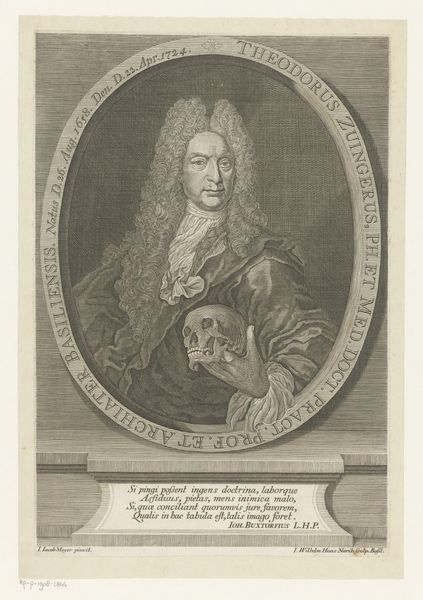
print, engraving
#
portrait
#
baroque
# print
#
engraving
Dimensions: height 189 mm, width 128 mm
Copyright: Rijks Museum: Open Domain
This is Johann Alexander Böner's portrait of Heinrich Linck, made using etching sometime between 1647 and 1720. During this period, portraiture served not just as a visual record, but as a statement of social standing. Linck, framed by an oval border, is encircled by text denoting his titles and affiliations. Consider the visual language employed here. Linck's elaborate wig, his formal attire, and the very act of commissioning a portrait, all speak to a carefully constructed identity, a performance of status intended for public consumption. The Latin inscription is a dedication to Linck. How does this carefully crafted image reflect and reinforce the hierarchical structures of 17th and 18th century European society? Portraits like these provide a window into the past, revealing the complex interplay between individual identity and societal expectations. They encourage us to reflect on the ways in which we, too, construct and perform our identities.
Comments
No comments
Be the first to comment and join the conversation on the ultimate creative platform.
